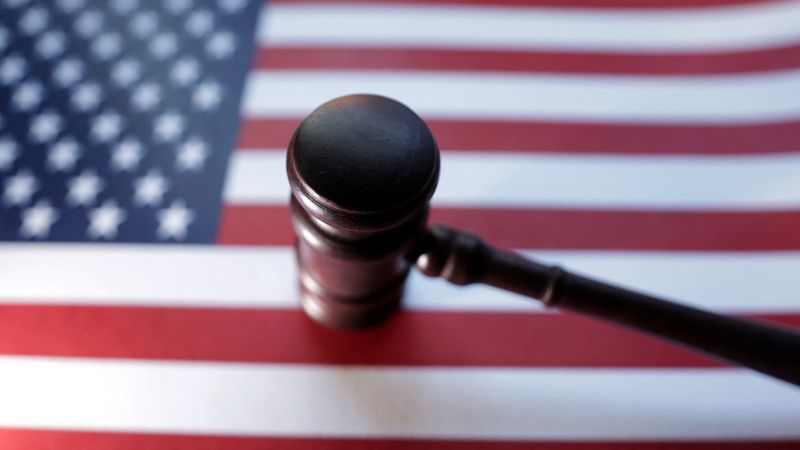US Judge Blocks Deportations of Unaccompanied Migrant Children to Guatemala in Emergency Ruling
Washington, D.C. – August 31, 2025
In a dramatic late-night intervention, a federal judge has temporarily halted the Trump administration’s plans to deport hundreds of unaccompanied Guatemalan migrant children, citing potential violations of U.S. laws protecting vulnerable minors. The ruling, issued just hours before scheduled flights, underscores escalating tensions in the president’s immigration crackdown, as advocacy groups argue the rapid removals bypass due process and endanger the children’s safety. With over 600 minors in government custody targeted for repatriation, the decision could set a precedent in the ongoing legal battles over unaccompanied minors, highlighting the clash between border security priorities and humanitarian protections established by Congress.
Key Details of the Ruling and Deportation Plans
U.S. District Judge Sparkle L. Sooknanan of the District of Columbia issued a temporary restraining order early Sunday morning, August 31, 2025, blocking the deportation of 10 unaccompanied migrant children to Guatemala for 14 days. The order, granted following an emergency complaint filed by the National Immigration Law Center (NILC) and the Young Center for Immigrant Children’s Rights, prohibits the administration from transferring the plaintiffs—identified only by initials and aged 10 to 17—into Immigration and Customs Enforcement (ICE) custody for removal. A hearing was initially scheduled for 3 p.m. ET but advanced to 12:30 p.m. to address the imminent nature of the flights.
The lawsuit contends that the deportations would violate the Trafficking Victims Protection Reauthorization Act (TVPRA) of 2008, which provides special protections for unaccompanied minors, including the right to a hearing before an immigration judge to assess asylum claims or risks of harm upon return. The children, currently in shelters managed by the Department of Health and Human Services’ (HHS) Office of Refugee Resettlement (ORR), were set to be flown back without such evaluations, potentially exposing them to abuse, neglect, persecution, or torture in Guatemala. The complaint describes the plan as an “imminent” transfer to ICE for flights, with the plaintiffs expressing fears of return in prior immigration proceedings.
The broader initiative targets over 600 Guatemalan children in ORR custody, described by officials as a “first-of-its-kind pilot program” coordinated with the Guatemalan government. On Thursday, ORR Director Melissa Johnston emailed staff to halt releases of Guatemalan minors except to parents or legal guardians in the U.S., signaling preparations for repatriation. Guatemala’s Foreign Affairs Minister Carlos Ramíro Martínez confirmed coordination, expecting over 600 minors in a “gradual and planned manner” to avoid adult detention centers. The U.S. has about 2,000 unaccompanied minors in custody as of August 2025, down significantly since Trump’s January inauguration, with most from Central America.
A similar case in Chicago federal court on Saturday blocked deportations of up to four Guatemalan minors until Wednesday, with a hearing scheduled.
Quotes from Officials, Advocates, and Experts
Judge Sooknanan, in her order, emphasized the urgency: “Exigent circumstances… warrant immediate action to maintain the status quo until a hearing can be set,” noting the children were “in the process of being removed.”
NILC attorney Ahmad Abuzir stated: “This is a clear violation of the unambiguous protections that Congress has provided them as vulnerable children… Defendants are imminently planning to illegally transfer Plaintiffs to ICE custody to put them on flights to Guatemala, where they may face abuse, neglect, persecution, or even torture, against their best interests.”
Young Center Executive Director Gladis Molina Alt added: “Sending children back without real safety plans is not ‘repatriation’—it is abandonment of the child and our nation’s commitments under U.S. and international law.”
Guatemalan Foreign Affairs Minister Carlos Ramíro Martínez said: “We have been coordinating with the United States and expected to receive more than 600 minors… in a gradual and planned manner.”
Legal expert Michelle Brané of Together and Free warned: “Summarily deporting children without due process will in many cases put them in harm’s way.”
Background: Trump’s Immigration Crackdown and Protections for Minors
President Donald Trump’s second term has intensified immigration enforcement since January 2025, with policies aimed at mass deportations, stricter border controls, and reduced asylum access. Unaccompanied minors, who crossed the southern border alone, are placed in ORR shelters until released to sponsors or turning 18, per the TVPRA. This law bars expedited removal for children, requiring screenings for trafficking, asylum claims, and risks of harm—protections enacted to address vulnerabilities after surges in the 2010s, when hundreds of thousands from Central America sought refuge from violence and poverty.
The pilot program, announced after Homeland Security Secretary Kristi Noem’s visit to Guatemala, frames removals as “repatriations” for children without U.S. parents, potentially bypassing hearings. Critics argue it violates due process, especially as some children have pending cases expressing fear of return. Guatemala has agreed to receive them to prevent adult detention, but advocates highlight risks like family separation and exploitation.
This follows similar controversies, like the erroneous deportation of a protected Guatemalan man in May 2025, ordered returned by a judge.
Potential Impacts and Next Steps
The ruling could delay or derail the pilot program, affecting hundreds of children and straining ORR resources amid a custody backlog averaging 187 days. It may lead to broader lawsuits challenging Trump’s policies, potentially reaching the Supreme Court on TVPRA interpretations. For the minors, it preserves access to hearings, sponsors, or asylum, but prolonged custody raises welfare concerns.
A Sunday hearing will determine if the order extends; advocates seek class-action status for all affected children. The administration may appeal or revise plans, while Guatemala monitors developments. Long-term, it could prompt congressional reviews of minor protections amid rising border encounters.
In conclusion, Judge Sooknanan’s emergency block on deporting unaccompanied Guatemalan children to Guatemala halts a controversial Trump initiative, affirming legal safeguards for vulnerable minors. The key takeaway? In immigration debates, due process remains a cornerstone—reminding us that protecting children’s rights upholds America’s humanitarian commitments, even amid enforcement priorities.
